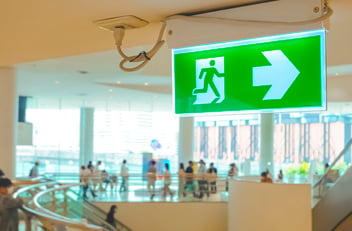The Surgeon, the Emotional Support Chicken, and the Medical Malpractice Carrier

No ruffled feathers here! Donna Nicholson shares why answering the phone and providing support can lead to outcomes that make everybody happy.
I was at a conference recently and during a short table chat with fellow attendees, three of us (a physician, a healthcare executive, and me – the risk management professional) started sharing various stories illustrating some of the challenges that physicians face while taking care of patients. The story I recounted was about a call that had come into our risk management department from a practice manager who was in a dilemma with how to handle an active situation happening in their practice.
One of their patients had arrived for his first post-op surgical appointment, all seemingly normal until the front desk professional noticed that the patient had a live chicken tucked up under his arm. Not knowing quite how to handle that, she wisely sought help from the practice manager. After unsuccessful attempts to have the patient remove the chicken from the practice, as well as a review of the patient’s case, the need for follow-up and his transportation obstacles, it was determined that it was in the best interest of the patient that he be seen that day. Seeking other advice, the practice manager called Curi’s risk management department to discuss the situation and help determine the best action to take.
Understandably, my tablemates asked right away – why would they call their malpractice carrier?
At Curi, we pride ourselves on being there for our insureds with valued advice and support. We don’t determine when an insured may need to reach out to us – they do. The critical role we play is that we answer the phone. We help guide them through whatever their situation or question or need might be. The surgeon and the emotional support chicken example here might seem kind of silly at first, but it took about 15 minutes of discussion with a Curi risk consultant, and the yield was an affirmation from the practice that Curi is indeed present for their insureds! And, for this particular practice, it led to a long and impactful amount of engagement with our risk mitigation services, assessments and policy updates – all triggered by the fact that we answered the phone and helped them with an unusual situation.
Are emotional support chickens one of the top drivers of risk? Not that I have seen documented, but I would argue that having an open phone line and being available to our insureds – for whatever their needs might be – creates a positive experience and can certainly build lasting relationships with them. This practice continues as a Curi insured today and has been for more than 15 years.
You might ask – is this really a true story? Yes, it is. What happened to the patient and the chicken? Well, it was too hot for the chicken to wait in the car, so one of the practice employees volunteered to wait outside with the chicken while the patient was seen by his surgeon. A happy, and well-supported, ending.
Curi Member? Learn more about service animals here:
Service Animals Guidance Document
*NEW* Service Animals in Healthcare Facilities









Comments